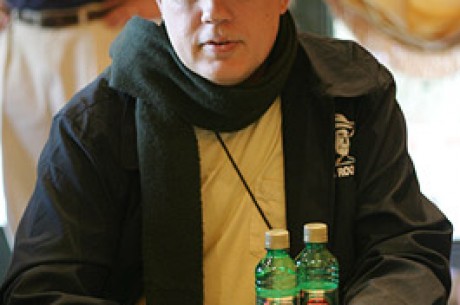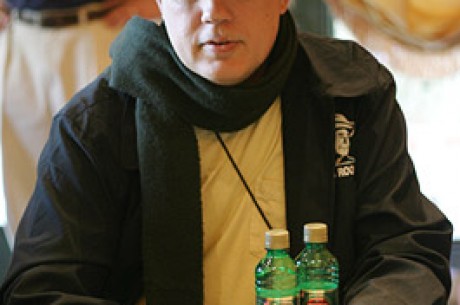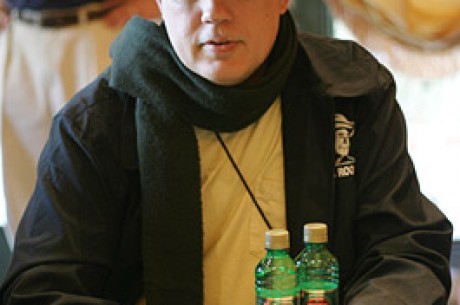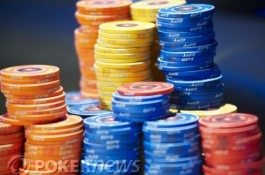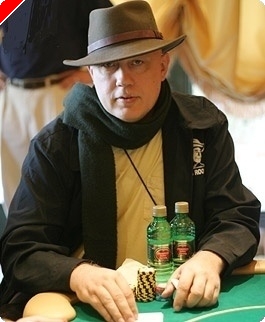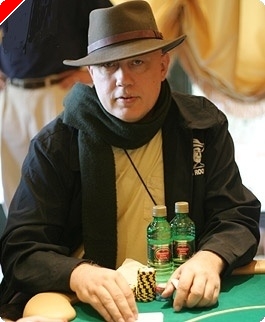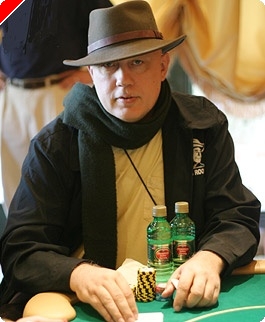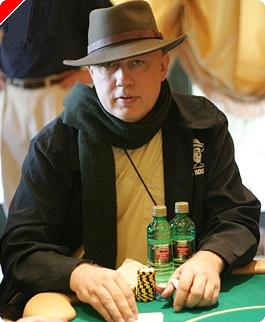Inside The Poker Tour �C 68 �C Glacial Play
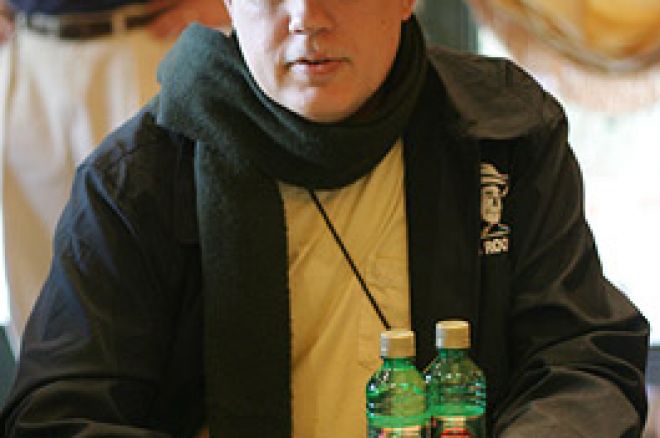
What, exactly, do I mean by Glacial Play? Well we all know how important table draw is both when we start an event and when we are getting close to the money. There is nothing one can do about it except buckle your seat belt and make the most of the situations that arise. It amazes me, as a matter of fact, at how much people complain about the situations that arise rather than do the best with the hand they are dealt. If you start an event with a horrid table it will usually change after about three rounds because a few players will get broke and replaced and the others will be either winning or stuck with some change in their play likely.
The first horrid table I ever had was at an event at the old Stardust when they had their year-long tournament called 'Stairway to the Stars' in the early 80's. I still remember JC Pearson [Puggy's brother who still plays cash games at the Bellagio] wanting to bet that his field of 8 players would be able to beat all the other runners in the field...and then scrambling to get his bets cancelled when six of his 'horses' were all at our starting table - table # 1 as luck would have it - which wouldn't be broken any time soon. In such situations over the decades I have several times heard the pithy remark, "Well boys, today we will eat one of our own!"
I would love to see everyone get 15 seconds to act and have some placards that they can toss into the pot to extend that, like six 30 seconders, two one-minuters, and two two-minuters...but I am almost surely living in a fantasy land as I do not see this type of uniformity being instituted any time soon. I say "almost surely" because ten years ago the non-smoking policy that has become common in tournaments and in live poker rooms seemed unfeasible, unlikely, and downright undoable--and yet now it is common! Thank you Casey Kastle! I think that the galvanizing moment for Casey came when we had two very successful tournaments at the Rio in Las Vegas about ten years ago and the third year they moved the tournament to Harrah's in Las Vegas and conditions were horrid, so flat-out bad that after event number one I changed my personal plans and went to Paris rather than attempt to play in the smoke-filled video parlor with no room to move that we were given.
When someone takes a long time to act online they often will raise as they hold the nuts and want to be called, but very often it is a reversed situation in person, where someone will stare at the bettor and their cards for some time before reluctantly letting them go. What are they looking at? What are they thinking about? I honestly don't know. Sometimes they are behind a raiser with 66 or JJ or KQ or something that they might have to process and make a real decision with, but at other points they must be thinking about what to do with 22 or A7 suited or A6 off-suit or K8 off-suit or Q2 suited behind a raiser, or they are just in stall mode plain and simple.
My main point here is that when everyone takes a long time to act, even when we are sure of what their actions are likely to be, it punishes everyone at the table. In these truncated time zones that are the every-day tournaments, it becomes crucial because it takes the skill right out of poker and lets it become a card-holding contest where skill is greatly lessened.
What prompts these thoughts? Well in event number four of the LAPC, with first place of over $262,000, I ended up at a glacial table [table number eight] in which we played about 12 hands each level through the 400-800 with 100 antes, 600-1200 with 200 antes, and 800-1600 blinds with 200 antes, so that the 42,000 in chips that I arrived at that table with had become very ordinary, in fact at 1000-2000 blinds with 300 antes I held 28,000 and had fallen far off the pace as we went under 70 players. Twelve or fewer hands per level meant that each hand took three or four minutes and many of them were passed out! This type of glacial play became popular at [URL="/party-poker"]Party Poker[/URL] a few years ago in tournaments where players that had qualified for bigger events through freerolls or three dollar satellites would go into the tank for the maximum allowed time throughout the tournament and most especially as we approached the money, so that everyone else at the table was punished and had very little opportunity to accumulate chips or win the tournament. Arriving at the bottom of the money will not pay one's way, nor gain any glory for the player. Table 8 was glacial even though a clock was called about six times in the two hours I was there--in truth it likely should have been called for on almost every hand.
With them paying 54 spots and us being about 65 players I took the leap into the abyss by raising with A?Q? in the two hole to 6800 over a 2000 big blind and the cutoff went into a long long think and called. Three minutes from the start of the hand we arrived at the flop...two handed...and it came K?Q?3?. I had 20,500 and the cost-per-round [CPR] was now at 5700 and I moved all-in with the hope he held JJ or TT and knowing that I was likely dead to the possible AK or QQ. He held A?K? and found the call, after only one minute or so, and I was sadly liberated from an oppressive situation. I might suggest other ways of playing this hand if I were at a big tournament with plenty of chips but given the actual situation I think it was push and pray time.
The contrast in this event was even more stark than usual by the fact that I came from a table where players not only acted quickly but had no idea where they were in a hand. My story was simple enough, I held KK in three key hands. First with about 22,000 at the 100-200 with 25 antes level a player pushed all-in with 5600 and holding A?8?, a bit of an overbet for sure, but brilliant when I called with K?K?, it came an ace, and I doubled him up. Next an under-the-gun player made it 1500 to go over a big blind of 400 with antes of 50 and I held K?K? again and re-raised him to 4000, now he put on his Hollywood act and talked about how he had best give his chips to me and took a minute to go all-in and stnd up. Well by now I was fairly sure he held AA but I am not a fan of letting the KK go in one of these smaller events and with our chip positions [9500 for him and 23,000 for me] it was simple to call and see what happened, first of all he turned over A?A?, and then it came Q?J?4?K?7? and he reaped his karmic rewards. The very next hand a player in front of me went all-in with A?Q? and holding K?K? [what else - maybe they did not get turned in?] and it came K?10?3?7?6? and I went well over 40,000 and was on my way to the disappointment that awaited me at table eight!
Until next time...play good and don't forget to get lucky, real lucky!

